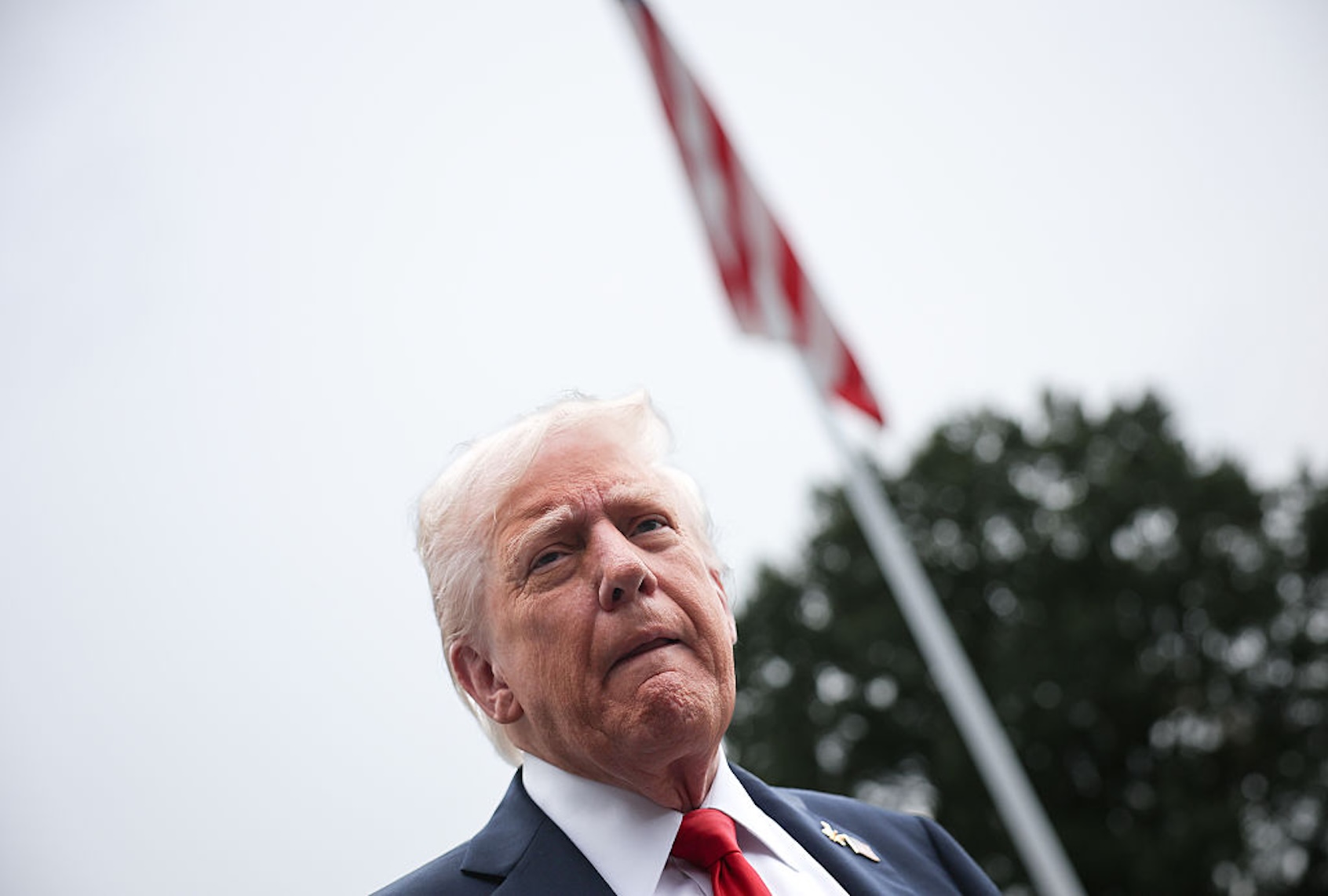World
Democrats Claim Major Victory as Trump Faces Growing Challenges

Democrats achieved significant victories in the off-year elections held on October 31, 2023, marking a decisive shift in political momentum. The party’s success exceeded expectations, winning by substantial margins in areas where Republicans have traditionally held sway. This outcome has left President Donald Trump grappling with the implications of these electoral losses while facing increasing scrutiny over his administration’s performance.
The results indicate a broader trend where the party not in power typically gains ground during off-year elections. Polls prior to the elections did not suggest any potential upsets for Republicans, yet the scale of the Democratic wins has been surprising. Observers noted Trump’s visibly distressed demeanor in the aftermath, characterized by low energy and moments of disengagement, including a notable instance where he appeared to doze off during a presentation by Dr. Mehmet Oz, the head of Medicare and Medicaid.
Trump’s second term has been marked by a chaotic approach, focusing on personal vendettas against perceived enemies while favoring allies, often to the detriment of governance. His foreign policy initiatives, aimed at bolstering his image among voters, have not resonated positively, particularly in light of the election results. Voter discontent has largely centered around economic issues, including inflation and affordability, which were central themes for the Democratic candidates.
As the election results rolled in, it became clear that Trump’s immigration policies, seen as authoritarian, have alienated significant segments of the Hispanic community. This demographic, which had shown a trend toward Republican support in recent cycles, appears to be shifting back toward the Democrats. The Republican Party’s previous confidence in securing the Latino vote has been challenged, particularly following their aggressive stance on immigration and related policies.
The economic landscape has also been a major factor in the electoral outcomes. Voters expressed frustration over rising prices and the overall state of the economy, with many attributing these issues to Trump’s tariffs and economic strategies. In a post-election reflection, Trump attributed the Republican losses to external factors such as government shutdowns, despite having largely ignored the issue in previous weeks. His call for the Senate to eliminate the filibuster in order to push through his agenda was met with resistance from Republican senators, indicating a growing divide within the party.
In a rare moment of clarity, Trump acknowledged the importance of “affordability,” admitting that it had become a significant concern for voters. However, his comments quickly reverted to defiance, dismissing affordability issues after a misleading corporate statement suggested lower Thanksgiving meal prices. This inconsistency has raised further doubts about his grasp of the economic realities facing Americans.
Legal challenges also loom for Trump, particularly regarding his use of tariffs. On November 1, the U.S. Supreme Court heard a case questioning the legality of these tariffs, with skepticism expressed even by judges he appointed. Trump recognized the potential for a setback, mentioning the need for a “game two plan” while attempting to reframe the tariffs as a national security measure, a move that lacked credibility.
Recent reports indicate that job losses are surging, with Challenger, Gray and Christmas documenting a significant increase in layoffs, marking October 2023 as the worst month for job reductions since 2003. Inflation remains a persistent issue, exacerbated by rising health care premiums and utility costs, creating a precarious economic situation for many Americans.
The electoral outcomes have sent a clear message to Republican officials: voters are closely monitoring the developments in Washington, D.C., and are dissatisfied with the current trajectory. The support base that once rallied around Trump appears to be fracturing, particularly among younger and non-white voters who have shifted back toward the Democratic Party.
As Trump grapples with these mounting challenges, he finds himself in a precarious position, facing accusations of mismanagement and disillusionment among voters. The coming months will be critical for both his administration and the Republican Party as they navigate the fallout from the election and address the pressing issues affecting the nation.
-

 Science4 weeks ago
Science4 weeks agoIROS 2025 to Showcase Cutting-Edge Robotics Innovations in China
-

 Politics3 weeks ago
Politics3 weeks agoJudge Considers Dismissal of Chelsea Housing Case Citing AI Flaws
-

 Lifestyle4 weeks ago
Lifestyle4 weeks agoStone Island’s Logo Worn by Extremists Sparks Brand Dilemma
-

 World4 weeks ago
World4 weeks agoBravo Company Veterans Honored with Bronze Medals After 56 Years
-

 Health4 weeks ago
Health4 weeks agoStartup Liberate Bio Secures $31 Million for Next-Gen Therapies
-

 Science4 weeks ago
Science4 weeks agoArizona State University Transforms Programming Education Approach
-

 Health4 weeks ago
Health4 weeks agoTop Hyaluronic Acid Serums for Radiant Skin in 2025
-

 Sports4 weeks ago
Sports4 weeks agoMel Kiper Jr. Reveals Top 25 Prospects for 2026 NFL Draft
-

 Lifestyle4 weeks ago
Lifestyle4 weeks agoMary Morgan Jackson Crowned Little Miss National Peanut Festival 2025
-

 World4 weeks ago
World4 weeks agoHoneywell Predicts Record Demand for Business Jets Over Next Decade
-

 Sports4 weeks ago
Sports4 weeks agoYamamoto’s Mastery Leads Dodgers to 5-1 Victory in NLCS Game 2
-

 Top Stories4 weeks ago
Top Stories4 weeks agoIndonesia Suspends 27,000 Bank Accounts in Online Gambling Crackdown









